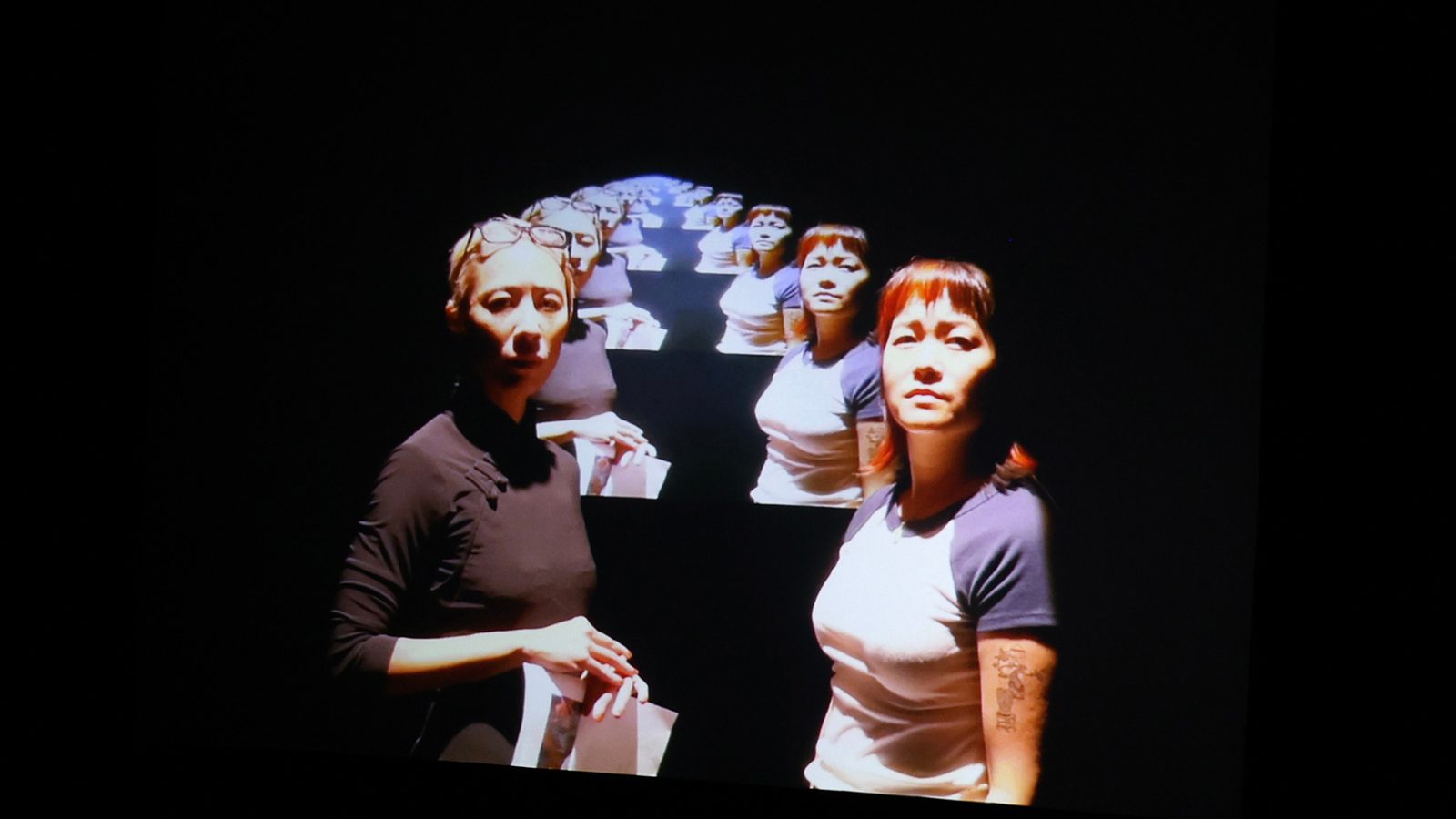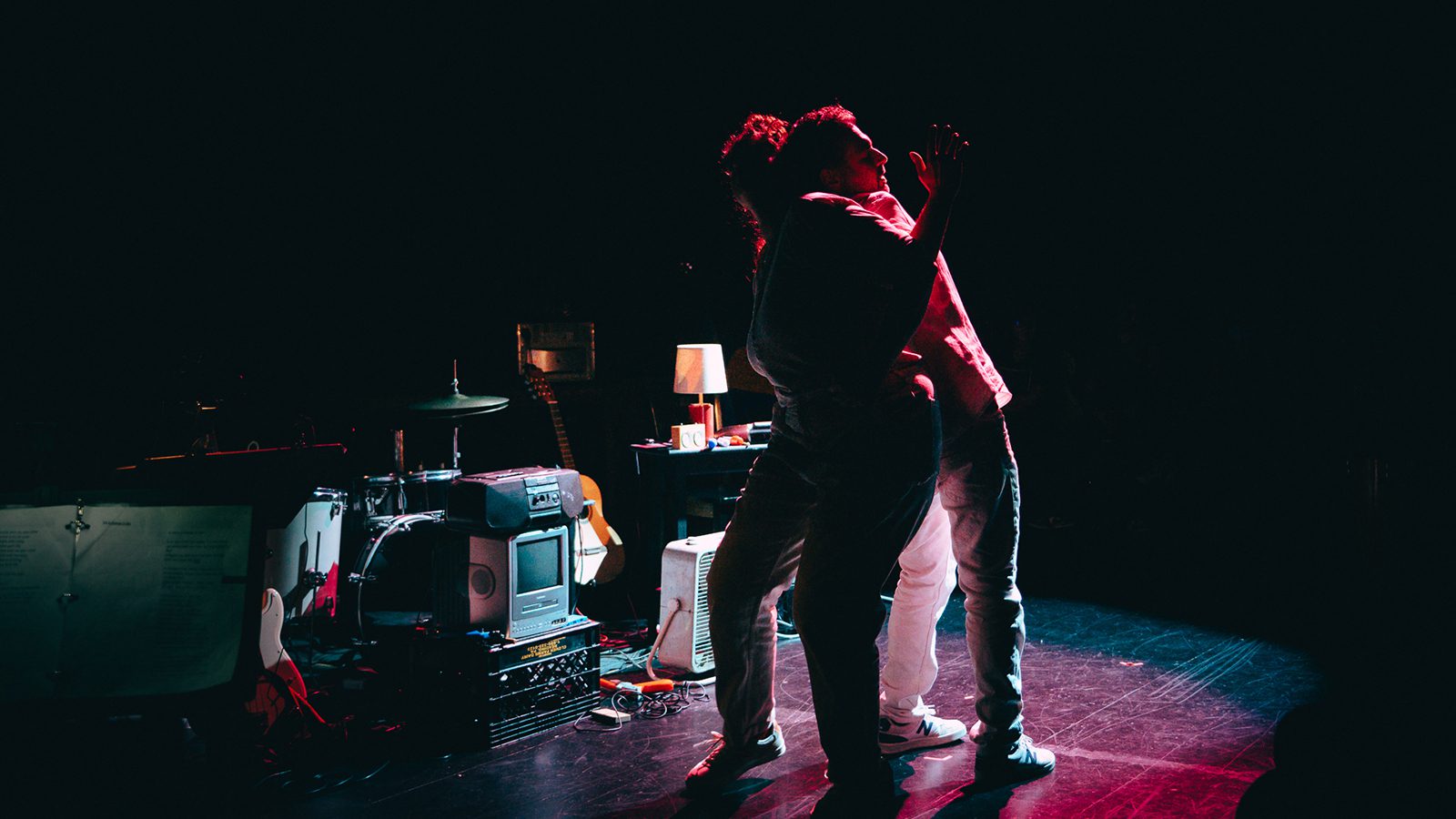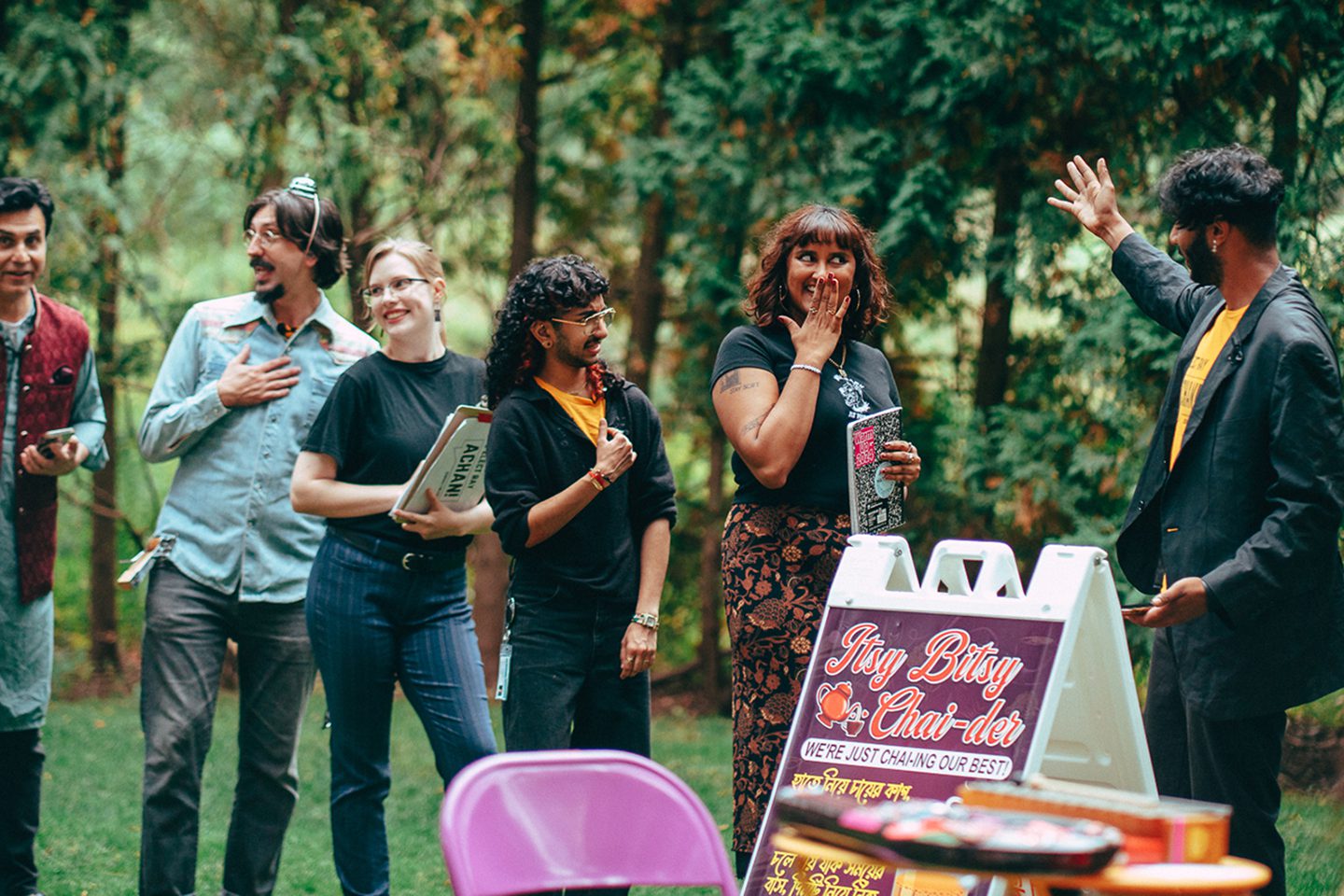Wellesley Repertory Theatre (WRT), the College’s award-winning professional theater company, debuted its Wellesley Repertory Festival on campus from September 24 to 30, featuring multidisciplinary presentations, readings, workshops, and panels by Wellesley College alums who are theatre artists.
The festival also marked the culmination of the first year of WRT’s new grant program, launched in 2024 to support original and evolving performing arts projects by Wellesley alums. The program expands upon traditional definitions of theater, says Marta Rainer ’98, director of theatre and theatre studies, highlighting the creativity and collaboration that have a lasting impact from the same starting point of Wellesley College. During the festival, the inaugural cohort of grant recipients, Maia Macdonald ’06, Annie Jin Wang ’14, and Sabina Sethi Unni ’19, invited the College community to join in both live performances and post-show conversations in spaces across campus.
From the moment the lights dimmed, the grantees’ live performances transformed those spaces into layered works of imagination and meaning. In Slow Motion Cumbia: Stages (I), Macdonald wove together movement and memory, her storytelling punctuated by rhythms that made the Alumnae Hall Auditorium pulse with quiet urgency. Wang’s The Actress Who Died a Thousand Deaths, about Hollywood star Anna May Wong, unfolded like a dialogue with her past selves, using both humor and vulnerability to turn the Ruth Nagel Jones Theatre into a site of reckoning and renewal. Unni’s Flood Sensor Aunty immersed audiences in a performance that fused activism with theatricality, collapsing the distance between stage and spectators. Together, these works reimagined familiar campus stages as spaces of discovery, where theater became at once personal and communal.

Over the course of six days, the community had opportunities to support the Theatre Studies Program and its efforts to bring professional work to campus. There was an emphasis on the importance of community engagement and the integration of activism and joy for all those who attended the festival. The theatre studies gatherings with the grantees became the center, but revolving around them was interdisciplinary work with the Camilla Chandler Frost ’47 Center for the Environment, the Lulu Chow Wang ’66 Center for Career Education, and other campus departments and groups.
Rainer was integral to the launching of the grant program and festival. In a conversation before the commencement of the festival, she said, “This mission was always to create dynamic work and build bridges from the Wellesley College theater experience into the professional world.” By bringing professional-level productions created by alumnae to campus, the College lets the community engage with work that they might otherwise only see in major cities and established venues.
In many ways, the festival embodies the mission of founding WRT Artistic Director Nora Hussey: to ensure that Wellesley students see themselves as artists whose work matters both on campus and in the world. “This is the first time a festival has been held alongside the grant,” Rainer explained. “What came about was the thrilling confirmation of that impulse.”
For current students, the festival offers a glimpse of the paths Wellesley alums create after graduation, underscoring the ways creativity, community, and storytelling can become part of their professional lives. For alums and families, it demonstrates that the College continues to invest in its graduates, affirming the lasting value of a Wellesley education in the arts.
—
Alums interest in submitting a grant proposal should check the website for the 2026-27 cycle.

